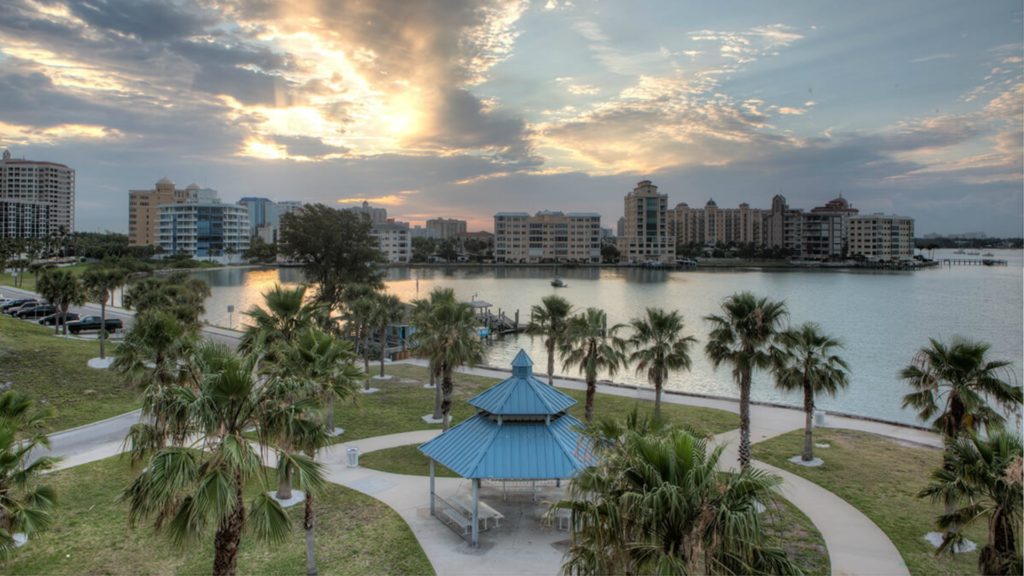
By Richard Eisenberg | Next Avenue
Probably the biggest retirement decision you’ll face (after: Can I ever?) is: Where should I retire? To help, U.S. News has just come out with its first Best Places to Retire in the United States ranking of the 100 largest metropolitan areas. Some of its Top 10 spots will surely surprise you and you may also wonder why certain parts of the country failed to make the cut.
“This is a much more comprehensive analysis than we’ve done in the past,” said Emily Brandon, U.S. News senior editor for retirement. “Before, we’ve done themed lists like 10 Places to Retire on Social Security Alone and 10 Retirement Spots With Year-Round Nice Weather.”
How U.S. News Ranked the Best Places to Retire
This time, U.S. News first asked people 45 and older to indicate the “attributes of a retirement destination that are most important to them” and collected responses from 841 of them. “What people told us was most important to them in a place to retire was ‘being affordable’ but also, they wanted to feel happy there,” said Brandon.
Based on the survey responses, the researchers then assigned weightings in indices of six broad categories — happiness living in particular metro areas; housing affordability for homeowners and renters; health care quality, based on the U.S. News Best Hospitals rankings; retiree taxes (sales and income); the strength of local job markets and what U.S. News calls “Desirability,” which means how strongly Americans said they’re interested in living in a given metro area. After all that number crunching, a Best Places ranking emerged.
The Top 10
The Top 10 best places to retire in America, according to U.S. News:
- Sarasota, Fla.
- Lancaster, Pa.
- San Antonio, Texas
- Grand Rapids, Mich.
- El Paso, Texas
- McAllen, Texas
- Daytona Beach, Fla.
- Pittsburgh, Pa.
- Austin, Texas
- Washington, D.C.
“Most of the places scored well on some measures, but not on others,” said Brandon.
That’s a fact. Sarasota had high scores for Happiness, Desirability and Retiree Taxes and decent ones in the other categories. McAllen didn’t fare well in the Job Market category and Washington, D.C. got a low ranking for Housing Affordability. El Paso and Grand Rapids were weak in the Desirability category.
Why Places Scored Well and Didn’t
The reason four Texas metro areas made it into the Top 10? “Affordable housing, low taxes and above-average levels of happiness,” said Brandon.
The three winners in the Middle Atlantic states (Lancaster, Pittsburgh and Washington, D.C.) had high rankings because of happy residents and access to high quality health care, Brandon noted.
You may have noticed that the Top 10 largely consists of small- and mid-size cities and no California or New York City-area metros. “I think a lot of that has to do with housing prices,” said Brandon. “Almost no California places scored high in the list largely because housing prices are out of reach for many people with low- or even mid-range incomes.” California home prices are 150 percent above the U..S. average, overall. The highest-ranked California metro area in the U.S. News list is San Diego, which came in at No. 21.
What About the Weather?
Somewhat strangely, the U.S. News ranking didn’t factor in weather at all.
“We had some discussion about whether to include weather,” said Brandon. “It’s tricky because not everyone has the same preferences when it comes to weather. Some people want four seasons. Some find snowy winters terrible.” The upshot: the rankers left out this variable.
How the U.S. News List Compares With Other Rankings
The U.S. News list is markedly different from other recent Best Places to Retire rankings from Forbes and WalletHub.
The 25 places Forbes chose, after looking at 550 communities, were in big and small cities and skewed toward warm and moderate climates; its top places included Clemson, S.C., Port Charlotte, Fla. and Green Valley, Ariz. None of its 25 were in the U.S. News Top 10.
WalletHub looked at the retiree-friendliness of the 150 largest U.S. cities across 40 metrics and its top picks were mostly large ones. Three cities in Florida topped the list: Orlando, Tampa and Miami. Austin was the only one in both WalletHub’s Top 10 and U.S. News’.
What the Rankings Can’t Rank
You won’t want to move to any place in retirement just because it’s on a Best Places list, of course. And no ranking can account for a key retirement location criteria for many people: proximity to family members.
Still, Best Places to Retire rankings can be a useful part of your research as long as you closely read their methodology, so you understand what the raters were rating.
“These types of surveys can be a great starting point in deciding where to retire,” said Brandon. “It all comes down to your personal preferences. Your criteria for what makes a best place to retire may be different than for others.”
![]() This article originally appeared on Next Avenue
This article originally appeared on Next Avenue
© Twin Cities Public Television - 2017. All rights reserved.
Read Next



